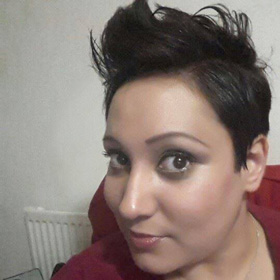Our review of The Cripple of Inishmaan
Potter No-more....
 Natalie Vincent, October 10th, 2013
Natalie Vincent, October 10th, 2013Questionable, interesting, strange
Hypocrisy and lies permeate the plot throughout
Great night out: For those who like their comedy dark and caustic
Morning after effect:Trying to say Babbybobby out loud without stuttering or laughing.
Recommend to friends: If they like dark comedy insults, and the word. "feck". this is for them
Best bit: Billy begging Babbybobby to row him to the neighbouring island to meet the film crew
The premise of the play appears quite unremarkable. A tale of a disabled young man who yearns to leave his deathly boring Irish village and see the bright lights of Hollywood. In the drab surroundings of Western Ireland circa 1934, gossip tends to centre around cats fighting geese, a local woman?s sexual escapades and of course, "Crippled Billy". Mostly when he is looking at cows.
Cast not entirely against type as an orphaned young man, Radcliffe finally finds his forte for black comedy in this role as Billy. Having perfected an Irish accent, he is alone amongst a cast of Irish actors, and carries off a convincing stumbling gait across the stage, with a rigid leg and withered arm.
Ridicules and pitied throughout his life, he has been raised by two clucking hen- aunts, Hanna (played by Eileen Osbourne) and Ingrid Craigie (played by Kate Osbourne. the latter whom has a penchant for speaking to stones when worried or stressed, not least when Billy disappears to America with a visiting film crew for a screen test.
Insults are traded freely and often callously - and when the humour does stop, the cruelty that Billy's neighbours inflict on him is bald and unflinching, especially Babbybobby. Hypocrisy and lies permeate the plot throughout; why did Billy's parents go out in the boat that fateful night? Why does Johnnypateenmike take so much pleasure in seeking out other people?s troubles for gossip? Even Billy?s own motives and methods are called into question.
At least one character is refreshingly simple by contrast.
Step forward the acid-tongued and vain Helen McCormick, deftly handled by Sarah Greene. She has a scornful putdown for everybody she speaks to, whether it be Ingrid, or her younger brother, Bartley. Fervantly believing that Billy stole her big break in Hollywood, she is positively vile, all the more maddening, given that Billy is in love with her.
We shouldn't laugh at Billy - but we do anyway.